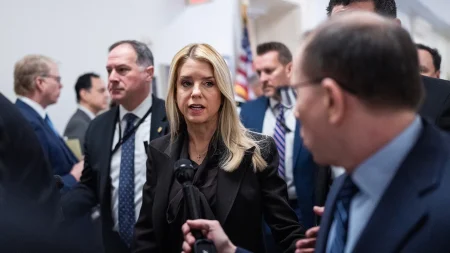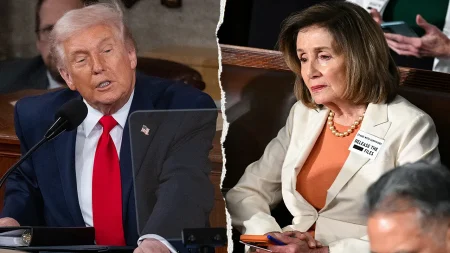Elon Musk’s condemnation of 158 House Democrats who voted against the Violence Against Women by Illegal Aliens Act has ignited a firestorm of debate. The Act, passed by the House in September with bipartisan support from Republicans and 51 Democrats, mandates the deportation of illegal immigrants convicted of sex crimes and bars those admitting to or convicted of domestic violence or sex-related charges from entering the U.S. Musk’s vehement disapproval, expressed on his X platform, calls for the removal of every Democrat who opposed the legislation, arguing there is “no excuse” for their stance. He amplified the criticism of X show host Mario Nawfal, who questioned how protecting convicted predators could possibly benefit anyone, especially their victims. This controversy underscores a fundamental clash of perspectives on immigration, crime, and public safety.
The core of the disagreement lies in the interpretation of the bill’s intent and its potential impact. Supporters, including Musk and Nawfal, frame the legislation as a crucial measure to protect women and children from violent criminals. They argue that deporting offenders is not fearmongering but a fundamental aspect of ensuring public safety. Conversely, opponents, primarily the 158 Democrats who voted against the bill, characterize it as xenophobic and fear-mongering, diverting attention from the need for comprehensive immigration reform. They contend that the bill unfairly targets immigrants and exploits the issue of domestic violence for political gain. Congressional Progressive Caucus Chair Pramila Jayapal echoed this sentiment, accusing Republicans of scapegoating immigrants and weaponizing the crime of domestic violence.
The political ramifications of this dispute are significant. Musk’s call for the Democrats’ removal from office reflects a growing trend of using social media to mobilize public opinion and influence electoral outcomes. His influence, combined with the widespread dissemination of information on platforms like X, has the potential to significantly impact the political careers of the targeted Democrats. This incident also highlights the increasingly polarized political climate, where issues like immigration and crime are often viewed through partisan lenses, hindering the possibility of constructive dialogue and compromise.
The list of Democrats who voted against the bill includes prominent figures like Rep. Jerry Nadler, former Rep. Adam Schiff, and former House Speaker Nancy Pelosi. Their opposition has drawn intense scrutiny from conservatives, who accuse them of prioritizing the rights of criminals over the safety of women and children. South Carolina Republican Nancy Mace, who introduced the legislation, labeled the Democrats who voted against it as “sexist against women.” The strong rhetoric employed by both sides reflects the deeply entrenched divisions on this issue.
Musk’s stance on this issue aligns with his previously stated intention to fund moderate Democratic politicians in deep blue districts to challenge those who he believes do not represent their constituents. His involvement in the upcoming presidential advisory committee, DOGE, further underscores his growing influence in political circles. His commitment to cutting government spending and reducing the size of government resonates with fiscal conservatives and adds another layer of complexity to his political engagement.
This controversy over the Violence Against Women by Illegal Aliens Act is more than just a disagreement over a single piece of legislation. It represents a broader clash of ideologies regarding immigration, crime, and the role of government in protecting its citizens. The passionate debate surrounding this issue highlights the deep divisions within American society and underscores the challenges of finding common ground on complex and emotionally charged topics. The outcome of this dispute and its impact on future policy decisions remains to be seen. However, it serves as a stark reminder of the power of social media to shape public discourse and influence the political landscape.















